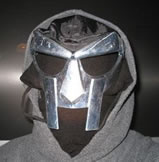 Let’s get one thing straight from the jump: I thought the movie version of The Losers was a blast. Loved it. Saw it twice. Loved it so much, I went out and got the entire Vertigo comic book in trade. And I can safely say this: If you hated the movie, don’t bother with the comic. But if you loved the movie, you might not love the comic quite so much…So why is the title headlining one of my rarified “Greatest Of All Time” posts?
Let’s get one thing straight from the jump: I thought the movie version of The Losers was a blast. Loved it. Saw it twice. Loved it so much, I went out and got the entire Vertigo comic book in trade. And I can safely say this: If you hated the movie, don’t bother with the comic. But if you loved the movie, you might not love the comic quite so much…So why is the title headlining one of my rarified “Greatest Of All Time” posts?
Hit the break to find out.
The story of The Losers is fairly simple in concept, but complicated and detailed in execution. It’s basically The A-Team with softer character definition. And that’s not my line, the book self-consciously refers to itself the same way. But unlike the movie, in which the enigmatic rogue CIA agent “Max” has a fairly simple plot to destroy the world like a James Bond villain, the comic book tells, over the course of 32 decompressed issues, a tale of intrigue and espionage that extends way, way up the CIA chain of command (I won’t say more, to avoid spoiling some of the surprises) and crosses every continent and just about every country in which there’s military unrest. Which is a nice way of saying: It’s convoluted. It’s more complex than the movie, and definitely geared to an older audience. But the film isn’t divorced entirely from the book—the pace is similar, and the film’s story is basically a lift from The Losers Volume 1.
The comic was written by Andy Diggle, best known as the guy who inherited almost a decade of amazing developments in Daredevil (from Brian Michael Bendis and Ed Brubaker) and destroyed all that good will with the worst event in Marvel history (Shadowland). He also did Green Arrow Year One and Dark Reign: Hawkeye, neither of which were terrible but also neither of which were more than just good. So The Losers is really his masterpiece.
Or is it?
Again, the writing is convoluted and the characterizations are … Often nonexistent. We know much of what we need to know by their roles on the team: The salty leader. The tech guy. The silent marksman. And there’s really not much more to them. Of course, most of the time we don’t need more than that because what Diggle does do—very, very well here—is create cool action scenarios and great military sequences. The opening scene in issue #1, for example, was pretty much filmed shot-for-shot in the movie, involving the hijacking of a military helicopter, and it’s a thrill. Every major arc has at least a few such sequences, and it’s the fuel that kept me turning pages here. In other words, I read The Losers for the rush, but not so much the words. And there’s nothing wrong with comics that are nonstop, breathless action. Nothing at all. It’s pure adrenaline, and a great read. And some of the Greatest Comics of All Time should be thrillrides—it’s what gets most of us hooked on the medium in the first place.
Which brings me to the word that explains why the book won an Eagle and two Eisners: Jock. This was the book that made him famous. His angular, shadowy, muscular style is perfect for a book that’s more flash than substance, and some of his page arrangements are startlingly innovative. Jock tells the story not just in the pictures themselves, but in how the panels overlap and flow—he’s a master of his craft. Just groove on this sample:

Overall, I definitely recommend the entire Losers run (which was recently anthologized as “Book One” and “Book Two,” for completists), but if you’re just interested in a few of the best arcs, here’s the best three: Volume One, “Ante Up;” the trade paperback titled “Close Quarters” (even though it’s got some non-Jock art); and the final trade, “Endgame.”
Careful readers out there are now asking why “Six Guns” is in the title. Here’s why: Marvel Six Guns is the latest Andy Diggle creation, in which he resurrects another team for yore. (I didn’t mention above that The Losers was originally a Jack Kirby war comic.) Six Guns reimagines Marvel’s western heroes (Two Gun Kid, Tarantula, Black Rider, Tex Dawson, and Matt Slade The Bounty Hunter, in modern times. Like The Losers, it begins with an action sequence, ends with a bang, and pretty much has a relentless pace. Like The Losers, it features antiheroes. Davide Gianfelice, the artist on the book, has a style very similar to Jock’s. And like The Losers, it bears little to no resemblance to the original characters. Which is great, because this comic is a surprising thrill. I can’t understand why more people haven’t read it or written it up. It’s not one of the Greatest Comics of All Time, like The Losers, but if you like the kinetic, nonstop ride of The Losers, you’ll probably dig this one as well. It does borrow pretty heavy from The Losers’ formula, though…Even down to the design:





